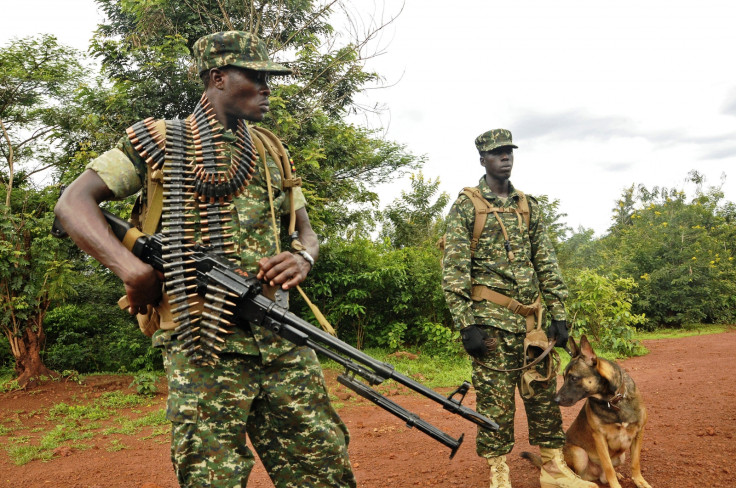Ugandan troops in CAR 'sexually exploited or abused' dozens of women and girls
Human Rights Watch and the United Nations report that soldiers threatened victims to remain silent.

Ugandan soldiers operating in the Central African Republic (CAR) have sexually exploited or abused at least 13 women and girls since 2015, some in exchange for food or money, according to Human Rights Watch (HRW).
Since 2009, the Ugandan army has been deployed in the CAR as a part of the African Union (AU)'s Regional Task Force to combat the Uganda rebel group, the Lord's Resistance Army (LRA), but announced it is pulling out its troops last month, saying that LRA rebel commander Joseph Kony is "no longer a threat". Ugandan forces could join Minusca, the United Nations (UN) peacekeeping mission in the CAR to continue operations against the LRA.
In early 2017, 13 women and three girls described how they had been exploited or abused since 2010 by Ugandan soldiers in the southeastern town of Obo, where Ugandan troops were based. This included at least one case of rape.
Rape survivor, 15-year-old "Marie," told Human Rights Watch (HRW) a Ugandan soldier assaulted her in January 2016, while she was working in the fields near the Ugandan base at the Obo airstrip. "The man was alone (...) I could not understand what he was saying," she said. "He pushed me to the ground [and he raped me]. Afterwards, there was real pain." The young girl, whose identity is protected, became pregnant from the rape and gave birth to a child in November 2016.
Two of the women were girls when the exploitation or abuse took place. Three of the victims alleged that soldiers threatened them, telling them to remain silent and warning of reprisals if they told Ugandan and United Nations investigators about the abuse.
Fifteen of the victims said they became pregnant but the soldiers who fathered the children left CAR. No child support has been provided.
The rights organisation warned that the 16 cases documented "clearly under-represent the full extent of sexual exploitation and abuse by the Ugandan forces", because sexual violence is often under-reported due to shame, stigma, or fear of retaliation.
The UN and local health workers have documented other cases. Last year, the UN Office of the High Commissioner of Human Rights reported 14 cases of rape by Ugandan forces in CAR. At least four of these victims, whose cases are among those HRW documented, were children at the time.
An internal 2016 report by the UN shows that UN investigators in Obo documented 18 cases of sexual violence or harassment by Ugandan soldiers against women and girls who afraid of speaking for fear of reprisals. Additionally, the report highlighted how 44 women and girls had bore children fathered by Ugandan soldiers. The UN team interviewed 12 of the victims – all girls.
Several victims said that Ugandan military investigators had interviewed them since 2016, but that there was no follow-up and they had no information about the investigation. The Ugandan Ministry of Defence and Veterans Affairs has not replied to a request to comment on the allegations, and whether it is carrying out investigations or disciplinary action.
"As counter-LRA operations wind down, Uganda's military should not ignore allegations of sexual exploitation and rape by its soldiers in the CAR," Lewis Mudge, Africa researcher at HRW, said. "Ugandan and AU authorities should conduct proper investigations, punish those responsible, and make sure that the women and girls who were sexually abused or exploited get the services they need."
Mudge urged Minusca to not consider accepting any Ugandan soldiers for the UN mission until allegations of sexual exploitation and abuse have been properly investigated and perpetrators held to account.
© Copyright IBTimes 2025. All rights reserved.






















